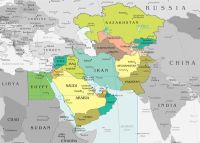WASHINGTON, March 2, 2011 — U.S. Special Operations Command brings increasingly vital capabilities to the nation’s military missions, its commander said yesterday.
Navy Adm. Eric T. Olson, Socom commander, testified before the Senate Armed Services Committee on Socom’s current and projected missions and budget requirements.
“I am convinced that the forces we provide to the geographic combatant commanders are the most culturally attuned partners, the most lethal hunter-killers, and most responsive, agile, innovative and efficiently effective advisors, trainers, problem-solvers and warriors that any nation has to offer,” he said.
Olson said 85 percent of Socom’s deployed troops are working in the U.S. Central Command’s area of operations. Socom operators are backed by “a magnificent assortment of administrative, intelligence, communications, engineering, logistics and other specialists,” their commander said, adding that the command’s headquarters staffs around the world also include more than 300 representatives from at least 15 other agencies within and beyond the Defense Department.
“Our value comes from both our high level of skills and our nontraditional methods of applying them, which is to say that our principal asset is the quality of our people,” he said.
Olson said his forces achieve “impressive effects,” whether they are conducting precision raids, organizing a village police force, arranging a new school or clinic, or partnering with counterpart forces.
“In Afghanistan and Iraq especially, it is undeniable that they have had impact far above their relatively small numbers,” the admiral said.
Socom has forces deployed to dozens of other countries as well, Olson said, contributing to regional stability by training and advising counterpart forces.
“This balance of direct and indirect operations must be carefully managed, but because special operations forces live in both of these worlds, we have become the force of first choice for many missions,” he said.
Socom faces the key challenge of how to meet an increasing demand for its capabilities, Olson said.
“We can’t grow them more than a very few percent per year, but the demand is outpacing the supply,” he said, noting that although the command’s manpower has doubled over the last decade, its overseas deployments have quadrupled.
Socom continues to successfully perform its missions, but the command is undergoing strain, Olson said. “The fabric is strong, [and] the weave is tight,” he said. “It’s not unraveling, but it’s showing signs of wear.”
Possible approaches to ease Socom’s strain include finding a process to assign units from the services to train and deploy with special operations forces, Olson said, and upgrading or adding training ranges and other facilities.
Olson also suggested “investing more broadly in the types of enabling capabilities that will relieve special operations forces from sending our own people to perform functions that could be performed by others.”
Finally, Olson urged expanding the services’ inventory of specific irregular warfare assets and ensuring Socom has the specialized equipment and advanced training its forces need “to survive and succeed in the complex, ambiguous and often violent environments in which we ask them to serve.”
“I ask for your action to approve a defense budget for fiscal year 2011, and for your support for your support for the fiscal year 2012 budget proposal,” he told the committee.
“I also ask that you fully fund the special operations budget, particularly as conventional forces begin to draw down from major operations,” Olson said, “because our forces will most likely be allocated at the same levels to areas with pent-up demand for our unique capabilities.”
The nation can take great pride in its special operations forces, the Socom commander said, adding that he is humbled to “command this formidable force, and to provide it to answer our nation’s most-daunting security needs.”
Source:
U.S. Department of Defense
Office of the Assistant Secretary of Defense (Public Affairs)

 von
von 